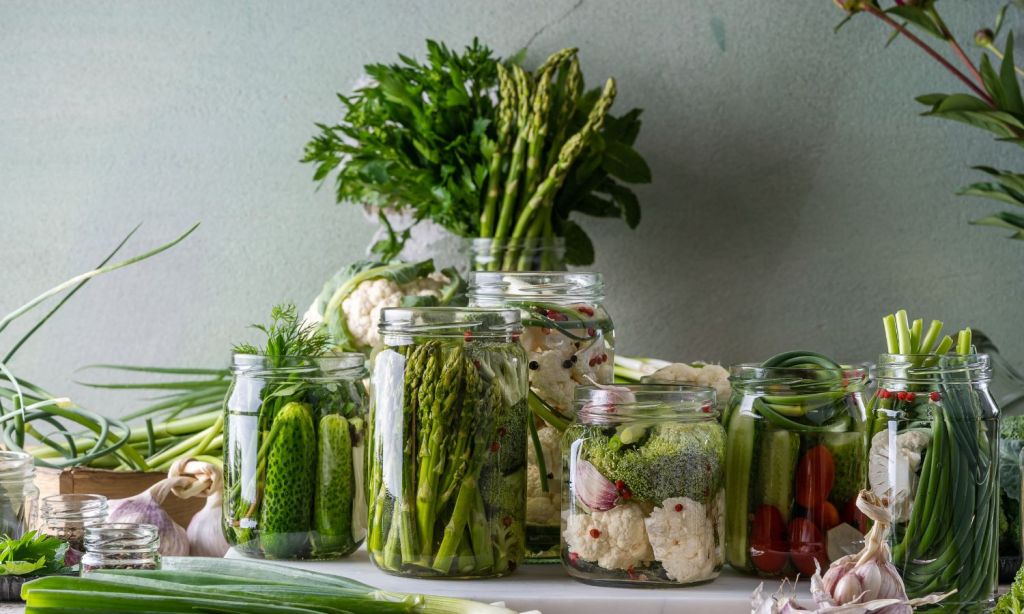The Latch has partnered with Suncorp Bank to deliver sustainability content that helps our readers drive positive action in their every day lives.
If you’ve ever found yourself inside the wholesome kitchen organisation corner of TikTok, you’ve likely seen people unpacking their groceries and storing certain types of produce in aesthetic jars filled with water. The idea behind this viral trend is that putting all kinds of vegetables into water will make them last longer — but if this correct or just another trend designed to make our kitchens look more organised?
One such TikTokker, @kaylah_ducane, who is known for creating videos relating to environmental education, claims that she extends the life of broccoli, cauliflower, grapes, lemons, Brussels sprouts and avocados. In her videos, she places the whole, uncut avocados, Brussels sprouts, grapes and lemon within an open-top glass cup, then fills the jar up with water till the vegetables are submerged and then places them into the fridge. For broccoli and cauliflower, she cuts the vege into florets and submerges them in a large mason jar filled with water.
While storing produce in water may seem like yet another hack on social media that has little merit, it’s important to look at the science behind the technique. Storing produce in water helps to slow down the chemical process of ripening, which happens when certain types of produce release a gaseous plant hormone called ethylene.
Most fruits have an initial amount of ethylene which boosts further ethylene production. When this happens, the fruits start turning, becoming softer or sweeter, as they are riper. This process also causes produce to spoil in the long run, so slowing the process can be a good thing if you want to get more life out of your produce.
This process of storing fruits or vegetables in water work best for non-climacteric produce; basically, a fruit that is able to ripen after harvest and away from the mother plant. Avocado, lemon, grapes and citrus fruits are good examples of this. It is also a process that works wonderfully to revive wilted or slightly soft plants by placing the stem or bottom part of the stalk in a cup of water for a day or less (this works great for broccoli).
However, some produce will not do as well when stored in water. This is because it absorbs the water and becomes less flavourful and less nutritious, as some water-soluble vitamins can leach out or be destroyed through the soaking process. Avoid trying to soak porous vegetables like celery, peeled carrots, and mushrooms, as these vegetables are more likely to absorb the water.
The bottom line is that while this nifty kitchen hack may work in the short term, it’s probably not the innovation it’s touted to be on TikTok. For information on how to appropriately store food to avoid spoilage or cross-contamination, consult reliable sources.
Read more stories from The Latch and subscribe to our email newsletter.







